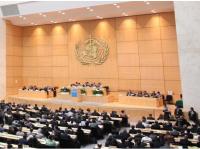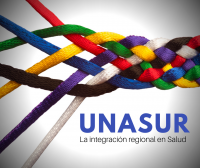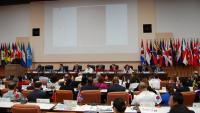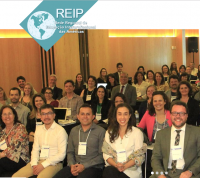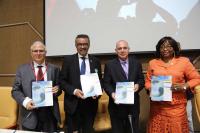You are here
News
-
05/21/2018 - The 71st World Health Assembly begins today. The event, which is held in Geneva, Switzerland, until Friday (26), is considered the highest decision-making body of the World Health Organization (WHO). That is where the sanitary guidelines that must be followed all over the planet come from voting that involves the 194 member countries of the organization. As an integral part of the United Nations system, for a long time of its newcomers, 70 years of existence, the organization played an absolute role in the design of global health priorities. A few decades ago, however, this is no longer the case. "WHO is not the most powerful actor in the global governance of health If we talk about financial weight, there are several actors that are more important than WHO, and depending on the area, depending on the disease, depending on the issue, there are other actors that are very important ", situates João Nunes, professor of International Relations at the Politics Department of the University of York, in England.
-
05/18/2018 - The Union of South American Nations was modelled upon the aspiration to achieve greater South American integration. This would result in the greatest possible well-being for its citizens, in harmony with nature and in an environment of peace, equity, inclusion and justice. In the last few weeks, has been many speculations about the role of Unasul and the practical results of regional integration. To feed the debate, Isags has prepared an unpublished dossier on integration from a health point of view.
-
05/15/2018 - WHO today released REPLACE, a step-by-step guide for the elimination of industrially-produced trans-fatty acids from the global food supply.Eliminating trans fats is key to protecting health and saving lives: WHO estimates that every year, trans fat intake leads to more than 500,000 deaths of people from cardiovascular disease. Industrially-produced trans fats are contained in hardened vegetable fats, such as margarine and ghee, and are often present in snack food, baked foods, and fried foods. Manufacturers often use them as they have a longer shelf life than other fats. But healthier alternatives can be used that would not affect taste or cost of food.
-
05/14/2018 - High-level dialogue during the 37th session of ECLAC. Ministers of Foreign Affairs and Finance from seven countries of the region and United Nations high authorities offered a fervent defense of multilateralism as the principal and only tool for advancing toward fulfillment of the 2030 Agenda and its Sustainable Development Goals (SDGs), and to arrive at development that puts equality front and center. This was in the context of ECLAC’s thirty-seventh session in Havana, Cuba.
-
05/03/2018 - Air pollution levels remain dangerously high in many parts of the world. New data from the World Health Organization (WHO) shows that 9 out of 10 people breathe air containing high levels of pollutants. Updated estimations reveal an alarming death toll of 7 million people every year caused by ambient (outdoor) and household air pollution. “It is unacceptable that over 3 billion people – most of them women and children – are still breathing deadly smoke every day from using polluting stoves and fuels in their homes." Air pollution levels remain dangerously high in many parts of the world. New data from the World Health Organization (WHO) shows that 9 out of 10 people breathe air containing high levels of pollutants. Updated estimations reveal an alarming death toll of 7 million people every year caused by ambient (outdoor) and household air pollution. “It is unacceptable that over 3 billion people – most of them women and children – are still breathing deadly smoke every day from using polluting stoves and fuels in their homes."
-
05/02/2018 - On the last day of the Cuba Health Convention, the website of the Regional Network of Interprofessional Education of the Americas (REIP) was launched during the panel: Interprofessional Health Education in the Context of the Regional Strategy on Human Resources for Health.The launch was organized by Jose Rodrigues Freire Filho, International Professional Consultant, and facilitated by Dr. José Francisco Garcia Gutierrez, Advisor in the Human Resources Department of the Pan American Health Organization/World Health Organization (PAHO/WHO). In attendance were Dr. Cláudia Brandão, Director of the Department of Health Education Management of the Ministry of Health of Brazil and Dr. Marcos del Risco, Director of the Department of Human Resources of the Ministry of Health of Cuba.
-
04/27/2018 - The health system in Cuba: progress and challenges, is the subject of the special supplement of the Pan American Journal of Public Health of the Pan American Health Organization (PAHO), which was presented this week at the III Cuba Salud International Convention 2018. The publication seeks to publicize successes that are known worldwide, but little is known about how they were achieved, what policies and programs were behind them, and how health services were organized so that Cuba, a developing country, that has limited resources, achieve indicators of more advanced countries.
-
04/26/2018 - Under nutrition, obesity and diet-related noncommunicable diseases are leading to catastrophic costs to individuals, to communities and to national healthcare systems in Africa. Every year, it is estimated that 11 million Africans fall into poverty due to high out-of-pocket payments for healthcare. According to experts attending a meeting in Nairobi, Kenya, nutritional status, a critical component of a person’s health and wellbeing, must be recognized as a necessary building block towards achieving Universal Health Coverage (UHC) and the Sustainable Development Goals (SDGs) by 2030. “Not only do current figures mean we are unlikely to achieve the six global nutrition targets for 2025 but also the more ambitious target of ending all forms of malnutrition by 2030, which is integral to the goal of ensuring healthy lives and promoting wellbeing for all, at all ages,” said Dr Matshidiso Moeti, the WHO Regional Director for Africa. She added that “an exclusive focus of our energies – and finances – on curative services and related medical equipment, supplies and medicines to treat diseases that often are rooted in malnutrition will limit our chances of achieving health and wellbeing for all.”
-
04/24/2018 - Half of the nations belonging to Unasur, a South American bloc set up a decade ago to counter U.S. sway in the region, have decided to suspend their membership, a Brazilian official told Reuters on Friday. The governments of Argentina, Brazil, Chile, Colombia, Peru and Paraguay believe the bloc has been rudderless under the current rotating presidency of Bolivia, according to a statement sent to Brazilian ministers, seen by Reuters. Bolivia’s Foreign Minister Fernando Huanacuni said the six were only pressuring for a quick turnover in presidency and stressed they were not abandoning Unasur. Bolivia will call an emergency meeting to solve disputes in the bloc, Huanacuni added in an interview with state media.
-
04/14/2018 - From April 21-28, 2018, the Region of the Americas will celebrate the 16th Vaccination Week in the Americas (VWA) campaign with a soccer theme in honor of the 2018 World Cup. The campaign slogan “Strengthen your defense! #GetVax #VaccinesWork” links strengthening defense on the soccer team with strengthening the body’s defense to vaccine-preventable diseases through vaccination.

